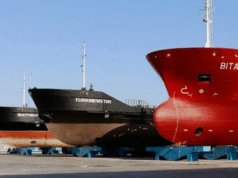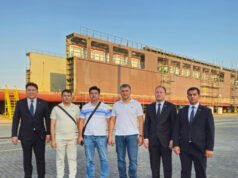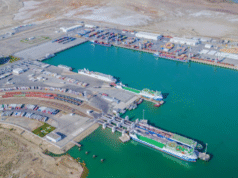The application of horizontal drilling at the Shah Deniz field in the Azerbaijani sector of the Caspian Sea has reduced surface intervention, increased gas recovery from the reservoir and improved operational safety, Hafiz Mirzaghayev, head of HSE Processes and Procedures at SOCAR Upstream Operations Management International (a subsidiary of the State Oil Company of Azerbaijan), said at the IADC Drilling Caspian 2025 Conference & Exhibition in Baku, Report informs.
He noted that Shah Deniz is one of the biggest offshore gas fields in the world, but its development faces several challenges: “These include the unique and sensitive ecosystem of the Caspian Sea, including rare species of flora and fauna requiring special protection, as well as complex offshore working conditions, high gas production costs and strict environmental standards.”
Mirzaghayev believes that the use of horizontal drilling made it possible to drill more wells from a single offshore platform, which reduced the need for additional facilities and thus minimized the impact on the marine environment. He added that IoT sensors and advanced drilling tools providing real-time monitoring were actively used to improve safety and efficiency.
“Among the key results are a 40% reduction in surface intervention compared to vertical drilling, increased gas recovery through optimized reservoir contact, and improved operational safety through predictive system monitoring,” he said.
Gas production at Shah Deniz began in December 2006. Currently, gas and condensate production at the field is carried out from the Shah Deniz Alpha platform under Stage 1 and Shah Deniz Bravo platforms under Stage 2.







